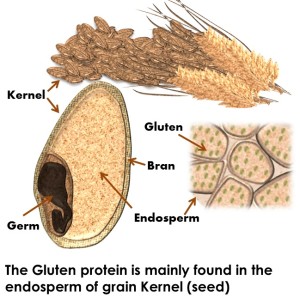
You may have been shopping and noticed more grocery stores and health food stores have been lining the shelves with gluten-free products. For those having to manage their celiac disease this is wonderful news. A gluten-free diet is essential for individuals with celiac disease, but for others who choose to follow a gluten-free diet without celiac disease they can be depriving their bodies of essential nutrients unnecessarily.
About one percent of Americans have celiac disease, but most of the people who reach for gluten-free products do not have celiac disease or sensitivity to wheat. The perception being that a gluten-free diet is healthier. So what is wrong with following a gluten-free diet?
Gluten is a protein found in wheat, barley, and rye. Additionally, gluten is found in many whole grains like bulgur, faro, kamut, spelt and triticale. Many of these whole grains that contain gluten have nutritional benefits such as: B vitamins, iron, calcium, zinc, magnesium and fiber. Whole grain foods offer health benefits that lower the risk of heart disease, type-2 diabetes and some forms of cancer.
Another consideration for gluten-free products, like bread and pasta, is the price. Gluten-free alternatives are more expensive. Studies show that gluten-free items were twice the price of conventional products.
To sum it up, if you feel that you may have gluten intolerance, we encourage you to get tested before diving into a gluten-free diet and talk to a doctor and dietitian that specialize in gluten-free therapy. If you do not, we encourage you to follow a general healthy diet including whole grains to prevent depriving your body of essential nutrients, minerals and fiber.
Questions or comments? Contact me at mjfarley@lexhealth.org or kbwunder@lexhealth.org